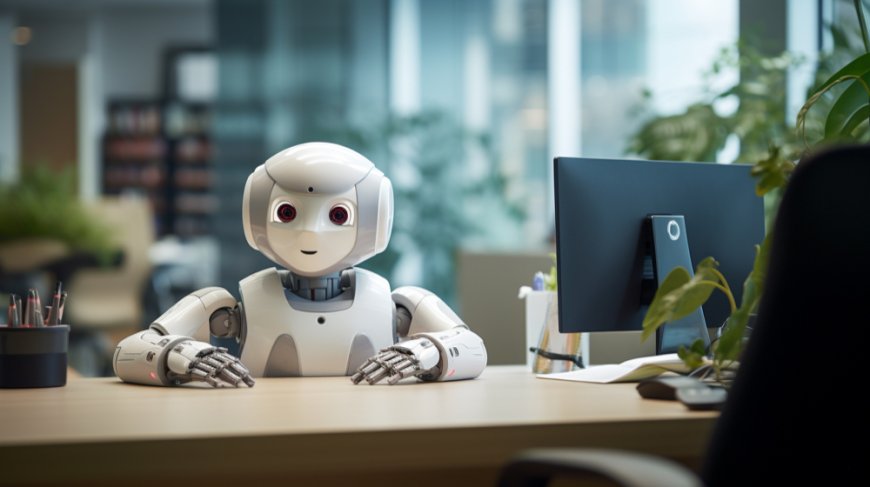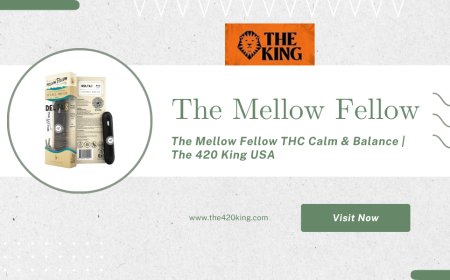Will AI Development Redefine Human Creativity and Innovation?
As AI development advances, it’s entering the world of creativity—generating art, music, writing, and innovative ideas. This article explores how AI is reshaping creativity and innovation, not by replacing human imagination.
Artificial Intelligence (AI) has been celebrated for its ability to process vast amounts of data, automate routine tasks, and optimize efficiency. But now, AI is entering a far more personal and intriguing space: creativity.

AI systems can now write poems, compose music, design logos, generate paintings, and even invent entirely new ideas. This sudden creative capability has sparked both excitement and debate. It raises a vital question: Will AI development redefine human creativity and innovationor simply change how we express it?
Lets explore this fascinating shift and what it means for the future of creative work.
The Rise of Creative AI Tools
AI-generated art and content were once considered experimental or gimmicky. Today, theyre everywhere.
From tools that write marketing copy to platforms that generate digital art based on text prompts, AI is quickly becoming a creative partner across industries:
-
Writers use AI to brainstorm ideas or draft articles.
-
Designers use AI to generate layouts, logos, and color palettes.
-
Musicians explore AI-generated melodies and soundscapes.
-
Filmmakers experiment with AI in video editing, scriptwriting, and even deepfake technology.
One of the most popular examples is generative AIsystems trained to produce original content by learning from huge datasets. These tools dont just remix existing ideas; they combine concepts in novel ways, sometimes surprising even their creators.
Collaboration, Not Competition
Contrary to common fears, many creative professionals dont see AI as a replacementthey see it as a collaborator.
Heres why:
-
Idea Generation: AI can rapidly suggest ideas or directions, helping creators overcome blocks or discover new styles.
-
Efficiency: AI handles repetitive tasks like color correction, background removal, or formatting, allowing humans to focus on higher-level creative choices.
-
Exploration: AI models often propose unexpected combinations of ideas, pushing artists and inventors to think beyond traditional boundaries.
Many creators describe working with AI like having a brainstorming partnerone that doesnt tire or run out of suggestions.
Shifting the Creative Process
AI isnt just changing what we createits changing how we create.
In the past, creativity was often seen as a solitary, mysterious process driven by intuition and inspiration. Today, its becoming increasingly collaborative and technology-driven.
Instead of starting from a blank canvas, many artists now begin with an AI-generated draft or concept, then refine it using their own taste and vision. This blending of machine output and human curation is giving rise to a new creative processone where intuition, data, and algorithms merge.
This shift is also reshaping industries:
-
Advertising agencies use AI to generate early design concepts for campaigns.
-
Fashion brands explore AI-generated clothing patterns and trends.
-
Product designers use AI to simulate prototypes and test ideas faster.
AI has become a tool that expands creative possibilities, not one that limits them.
Redefining Innovation Across Industries
Beyond the arts, AI is also changing the way we think about innovation itself.
In fields like engineering, medicine, and science, AI accelerates research by:
-
Discovering new drug compounds
-
Optimizing renewable energy technologies
-
Identifying breakthrough materials for construction or manufacturing
AI-powered simulations can now solve problems in minutes that once took months of trial and error. This speed allows researchers to test more ideas, explore new hypotheses, and focus on solving harder problems.
As a result, innovation is no longer just about slow, linear progressits becoming faster, more collaborative, and increasingly shaped by AIs analytical power.
The Question of Originality
One of the biggest debates surrounding AI and creativity centers on originality.
Some argue that AI-generated content lacks true creativity because machines simply mimic patterns from existing data. After all, AI doesnt feel emotion or understand the meaning behind its creations.
Others, however, suggest that originality has always been a blend of old and new. Even human artists build on past influences, remixing ideas to form something fresh.
In this view, AI is simply another tool in the long history of creative innovationsimilar to how cameras, synthesizers, or digital design software once revolutionized the creative world.
Ultimately, the question isnt whether AI can be originalbut whether humans can use it to unlock new forms of creative expression.
Challenges and Ethical Concerns
AIs growing role in creative work does raise valid concerns:
-
Bias in AI Models: If AI is trained on biased or narrow datasets, it can perpetuate stereotypes or exclude certain voices.
-
Copyright Issues: Questions remain about who owns AI-generated content, especially when models are trained on existing works.
-
Job Displacement: As AI automates parts of creative industries, some worry about the impact on traditional creative jobs.
These issues highlight the need for ethical guidelines and transparent practices in AI developmentensuring that creative AI tools empower rather than exploit.
The Future: Expanding, Not Replacing, Human Creativity
So, will AI development redefine human creativity and innovation?
Yesbut not by replacing humans. Instead, it will expand the creative process:
-
Helping people express ideas faster and more easily
-
Making creativity accessible to those without traditional training
-
Inspiring new forms of art, design, and invention that blend human and machine intelligence
In the future, we may stop thinking of creativity as either human or AI-driven. Instead, well likely view it as a shared process, where humans bring meaning, emotion, and intentand AI offers speed, scale, and fresh perspectives.
Final Thoughts
AI development is undeniably reshaping creativity and innovationbut its not diminishing the human spirit of creation. In fact, its unlocking new ways for people to imagine, explore, and build.
The tools may be changing, but the core of creativity remains the same: curiosity, passion, and the desire to make something new.









































